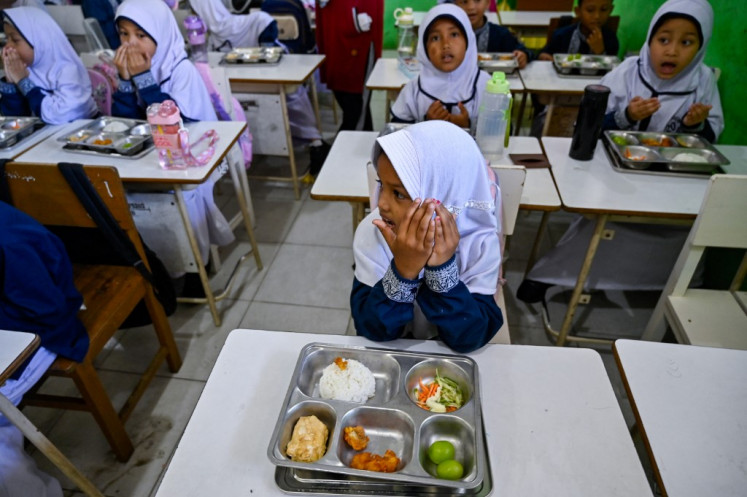Popular Reads
Top Results
Can't find what you're looking for?
View all search resultsPopular Reads
Top Results
Can't find what you're looking for?
View all search resultsWhy efforts to eradicate ‘pribumi’-‘Tionghoa’ tension fail
A survey from the Wahid Foundation in 2017 confirmed that the Tionghoa are among the most disliked groups in Indonesia along with communists, nonbelievers, LGBT and Jewish groups.
Change text size
Gift Premium Articles
to Anyone
I
ndonesia’s multicultural, multiethnic, multireligious nature results in a diverse and vibrant society. Unfortunately, this diversity also results in numerous protracted interethnic tensions. Here, I want to shed some light on why the Indonesian government has failed to eradicate interethnic antagonism between pribumi (indigenous Indonesians) and Tionghoa (Chinese-Indonesians).
Economic and social inequalities along pribumi-Tionghoa ethnic lines are the symptoms, not the source, of this antagonism. Fundamental sociocultural differences between the two groups are the sources of these protracted interethnic tensions.
Pribumi-Tionghoa antagonism has deep historical roots, driven by cultural differences that have resulted in significant economic, political and social inequalities. Under Dutch colonial rule, Tionghoa enjoyed preferential treatment over the indigenous communities and controlled the majority of the trade sectors. After independence, their fate was reversed, and for about 50 years they suffered significant political, cultural and social discrimination. Still, they were allowed to participate in business.
Currently, institutionalized discrimination against Tionghoa has been removed, and they dominate Indonesia’s private economy. Thanks to their wealth, they also increasingly influence the political arena. Chinese-Indonesians’ dominance, which has resulted in Indonesian society being stratified along Tionghoa-pribumi ethnic lines, is not welcomed by most pribumi.
Numerous indigenous Indonesians regard Tionghoa as a group that has obtained wealth and power in dubious ways, fostering hostile, at times violent, feelings towards Tionghoa. A survey from the Wahid Foundation in 2017 confirmed that the Tionghoa are among the most disliked groups in Indonesia along with communists, nonbelievers, LGBT and Jewish groups.
The May 1998 riots, predominantly targeting Tionghoa communities, and the conflict in Tanjung Balai are just two examples of how underlying racial tensions have boiled over. A more nuanced case of underlying interethnic antagonism is the one that resulted in former Jakarta governor Basuki “Ahok” Tjahaja Purnama being found guilty of blasphemy and jailed for two years. Obviously, the government is aware of these interethnic tensions and has made numerous efforts to eradicate them.
Why then has Jakarta failed to normalize pribumi-Tionghoa relations? The answer is that the Indonesian government has not addressed the source of the tensions: fundamental social and cultural differences that result in Tionghoa consistently outperforming pribumi in professional and business areas.


















